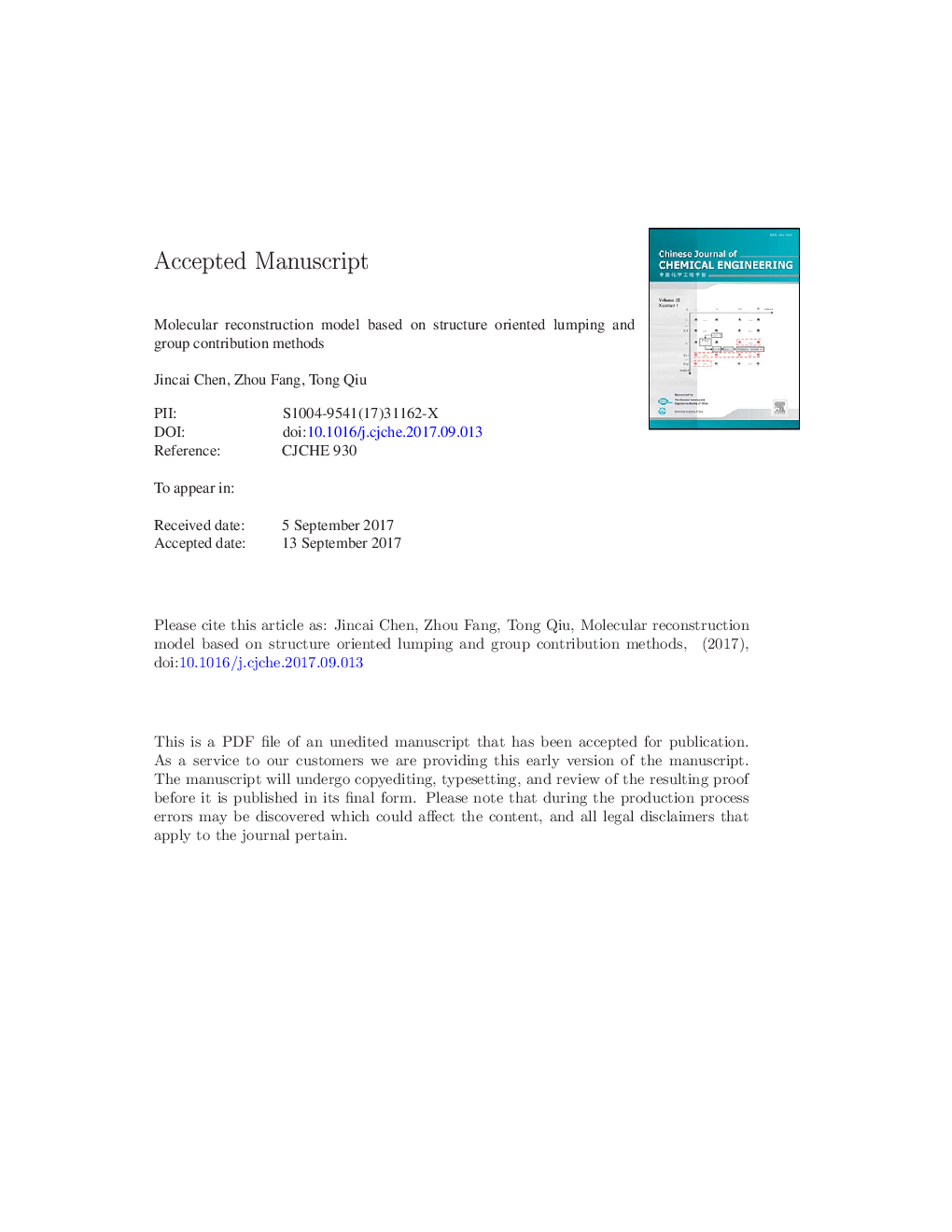| Article ID | Journal | Published Year | Pages | File Type |
|---|---|---|---|---|
| 10150254 | Chinese Journal of Chemical Engineering | 2018 | 14 Pages |
Abstract
Molecular management is a promising technology to face challenges in the refining industry, such as more stringent requirements for product oil and heavier crude oil, and to maximize the value of every molecule in petroleum fractions. To achieve molecular management in refining processes, a novel model that is based on structure oriented lumping (SOL) and group contribution (GC) methods was proposed in this study. SOL method was applied to describe a petroleum fraction with structural increments, and GC method aimed to estimate molecular properties. The latter was achieved by associating rules between SOL structural increments and GC structures. A three-step reconstruction algorithm was developed to build a representative set of molecules from partial analytical data. First, structural distribution parameters were optimized with several properties. Then, a molecular library was created by using the optimized parameters. In the final step, maximum information entropy (MIE) method was applied to obtain a molecular fraction. Two industrial samples were used to validate the method, and the simulation results of the feedstock properties agreed well with the experimental data.
Related Topics
Physical Sciences and Engineering
Chemical Engineering
Chemical Engineering (General)
Authors
Jincai Chen, Zhou Fang, Tong Qiu,
